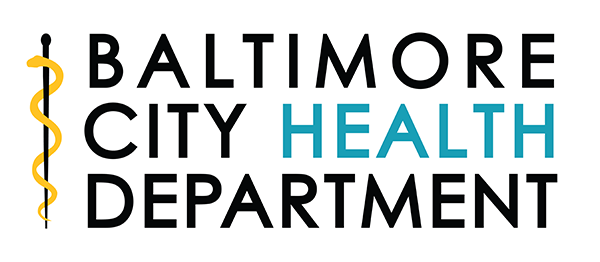Purpose • Background • Dependencies • Structure • Usage • Contributors • License
The intended purpose of this project is to provide a definition and state for the infrastructure of the Baltimore City Health Department (BCHD) Health Dashboard.
In 2016, the BCHD launched the TECHealth program and innovation fund with the goal of using technology to better understand and address health disparities in the city. As a grant awardee and member of the TECHealth cohort, Fearless created a dashboard for BCHD to track public health trends and correlate them with environmental and social factors. For more context and to view the code for the dashboard, visit the repository here.
- AWS CLI
- AWS access tokens:
- These need to be defined within
env.tfvars, this can be copied fromenv.tfvars.example, and you'll need to modify the file to match your credentials - NEVER CHECK
env.tfvarsINTO GIT HISTORY!!! - These details can be gathered using the AWS api, and the user requires access to be able to do the following:
- Create IAM roles/role profiles
- Create S3 buckets
- Full EC2 access
- It also requires an existing keypair in AWS which can be defined in
env.tfvars - Terraform
- variables.tf - Defines variables to be used to connect to the provider
- iam.tf - Defines IAM roles and role profiles for all instances to access S3 buckets containing configuration files
- s3.tf - Define a private S3 bucket with a logging bucket to log activity, private bucket will contain configuration files for instances
- staging.tf - Network configuration for staging node, open access to necessary ports for development
- prod.tf - Network configuration for production node, restricted access with web/ssh ports being exposed over ELB
- userdata - These will provision the server with necessary application dependencies for deployment
- main.tf - Provisions nodes and ties in previously defined resources, assignment of AMI for instance provisioning and appropriate assignment of userdata per node
First and foremost, be very cautious what you do. Terraform can and will tear down existing infrastructure if changes are made to userdata or instances. You've been warned.
- Set your values for a few config variables:
- variables.tf contains a variable named allow_ips which lists all IPs that should be whitelisted for SSH, Mongo, Postgres, and HTTP port 3000 access to the staging environment. This is a quoted, comma-separated list in CIDR notation. It should be overridden in your env.tfvars file
- configs/authorized_keys contains a list of RSA public keys which are authorized to SSH into the environment. The format is the same as a Unix/Linux SSH authorized_keys file. Ideally, there should be a comment before each public key with the name of its owner for auditing purposes.
- There are several environment variables used by the dashboard application that will need to be set. The files for staging and production are staging-secrets.sh and prod-secrets.sh respectively. Examples showing exactly what variables need to be set are found in staging-secrets.sh.example and prod-secrets.sh.example. Any changes to local copies of the secrets files will be pushed to S3 when
terraform applyis run.
- To test that you've configured things properly run
terraform plan --var-file='env.tfvars' - Once confirmed that everything is configured, you can then run
terraform apply --var-file='env.tfvars'
EC2 AMI used chosen using guide provided by Ubuntu: https://help.ubuntu.com/community/EC2StartersGuide
For future thought if need be: https://askubuntu.com/questions/53582/how-do-i-know-what-ubuntu-ami-to-launch-on-ec2


